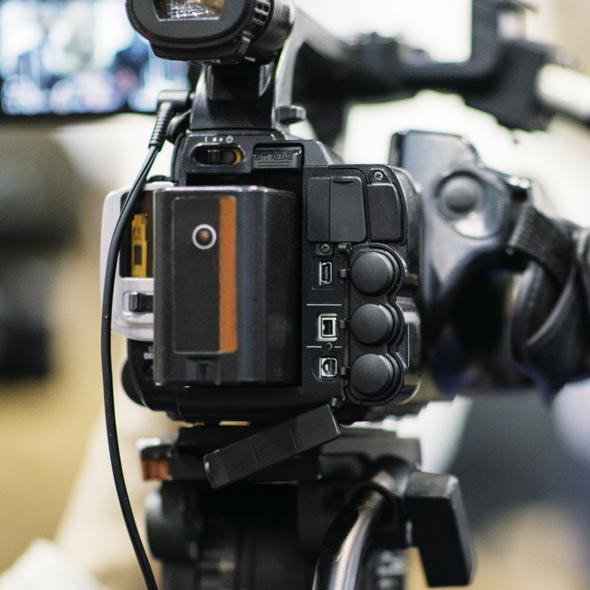4 Tips to Help You Bounce Back After a Layoff

A layoff is a reduction in staff caused by downsizing or a decrease in operating expenses. If you are laid off from your job, don’t consider it a setback; instead, see it as an opportunity for a fresh start. While feeling anxious after a layoff is normal, moving past that fear and putting your best foot forward when looking for a new job is essential.
Here are four tips to help you bounce back from a layoff successfully.
Focus on Your Mental and Emotional Health
Losing a job can be traumatic—not only is there the loss of income and fear of what’s next, but there’s also the loss of identity that’s wrapped up with your career. After a layoff, it’s essential to take the time to grieve and process what happened before you start looking for a new job. It’s normal to feel angry, resentful, and depressed over this change in circumstances. In the midst of all these emotions, it can be tough to stay positive—but it’s important not to get stuck in negative thought patterns. Do this by taking time to do things that make you feel good—exercising, spending time with friends or family, picking up a new hobby, or anything else that makes you happy.
Consider working with a therapist if you have trouble bouncing back after experiencing a layoff. They can help you learn to deal with anger healthily and manage stress levels so it doesn’t harm your health. Talk with family and friends you trust about what happened; share your feelings with them—they can help provide some perspective on the situation. Reaching out to your network can also help you learn about new opportunities or give you leads on job openings that might be a great fit for you.
Job Searching Becomes a Top Priority
When you’re laid off, finding a new job is your top priority. First, find out which companies are hiring in your industry by looking beyond their official websites and exploring insights into how they do business through news articles, trade journals, and job boards. Then update your resume to make it more relevant to your new goal: take any skills and experiences that could apply to other jobs in the industry, and highlight them. If you’ve got transferable skills like managing projects that aren’t necessarily listed on your current resume, consider including them as well—you never know where these skills might lead. Additionally, join groups on LinkedIn or Facebook where people in the industry hang out so you can make connections who might be able to help you find work.
Building an active LinkedIn presence can be helpful for job seekers who have recently been laid off. It is a good idea to build up your profile, which can let employers know that you’re experienced and up-to-date with the latest trends in your industry without you having to say so explicitly. You can share examples of your work to demonstrate your knowledge, upload videos or presentations showing how well you communicate, and add recommendations from people currently working in your field. These things will make potential employers curious about how much potential there is inside of you.
Be Proactive
After a layoff, you are wondering how you will make ends meet. When you get your final paycheck, you must review it immediately. If there are any mistakes, point them out so they can be corrected. Reviewing your check stub before filing an unemployment claim can help ensure that you are entitled to benefits. If you lost your job through no fault of your own and have recently filed an unemployment claim, it’s essential to know the state unemployment office will need proof that you were eligible for benefits when you were out of work. One way to do this is by providing a copy of your final paycheck stub or other documentation from your employer showing the dates on which you were laid off.
It’s also important to keep track of how long you’re covered under your employer-sponsored health insurance plan. Typically, employers pay a single month in advance, which is welcome news for those laid off early in the month, but not so much for those laid off near the end. Don’t hesitate to ask the company’s HR department if you have questions about your coverage or how long it lasts.
Be Professional at Job Interviews
It’s easy to feel angry and bitter towards your former employer if you’ve been laid off—after all, it takes time to accept that you’ve lost your job. But the longer you dwell on the negatives, the more they’ll hold you back from future opportunities. As much as possible, try focusing on any positive aspects of the situation. When you start interviewing for jobs, ask your former employer to serve as a reference; future employers will want to speak with someone who knows your performance well. As you leave, remain professional and not burn any bridges by saying things you won’t be able to take back or will leave a negative impression of you as this could work against you when you seek a new job. You never know who might be able to help or even hire you.
When you go to an interview, be professional and positive. Don’t say anything negative about your former employer. For example, if the layoff occurred due to budget cuts, describe how it wasn’t a reflection of your work. After that, mention some of your accomplishments at that company and what positive experiences you’ve had there. This can help you by demonstrating that even in challenging situations, you can do well professionally.
It can be hard to bounce back after a layoff. If you’re recently unemployed, you need to remain optimistic that you’ll land a new job soon. Ensure you are taking care of your mental and emotional well-being, looking for a new job, and remaining positive. The best-case scenario is that you will find an even better job where you’ll thrive.
About EG Workforce Solutions
We’ve been in this business for decades and have developed a deep network of professional connections. Whether they’re companies looking for talent, job seekers looking for work, or an up-and-coming store in need of some temporary help, we know the right people to bridge the gap between the hiring and the hired.
But what’s more, we get to know people. From employers hiring to candidates looking, we take the time to listen and learn. We hear your likes, talents, and needs. We gain an understanding, and with it, we’re able to facilitate lasting relationships between businesses and people.
Back to Blog Page




